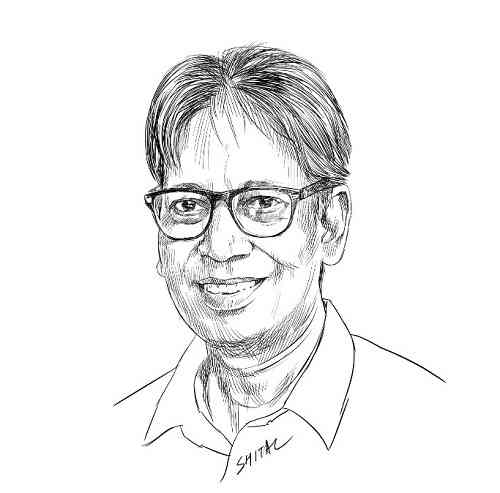The role of technology in the fashion industry
Fashion technology is witnessing unprecedented growth at a faster pace than ever. From the inception of sewing machines to temperature-regulating fabrics to the latest incredible concept of metaverse stores, fashion has come a long way.

Fashion technology is witnessing unprecedented growth at a faster pace than ever. From the inception of sewing machines to temperature-regulating fabrics to the latest incredible concept of metaverse stores, fashion has come a long way.
As per the CB Insights’ Industry Analyst Consensus, the fashion segment has emerged one of the largest industries in the entire world with a total worth to cross more than $3T by the end of this decade.
Technology has forayed into every aspect of fashion right from automation to customization and the process of how the orders are manufactured, designed, distributed, and marketed. Soon the sights of robots cutting and sewing fabrics, AI algorithms predicting style trends and even outfits that can be tried in virtual reality will be a common phenomenon.
However, a lot will depend on how fashion brands seize the opportunity offered by evolving technological trends in fashion to gain a competitive edge in the businesses. Brands that will adapt to new technological trends in fashion will be able to explore more business models and revenue streams. This will fuel the trend of partnering with technology providers, and even building their fashion-focused tech.
Amidst this, technology will play a pivotal role in recognizing sustainability impact in the fashion value chain which has been long overdue. Here let’s dive deeper into the areas where technology is expected to play a prominent role in the fashion industry:
Product design
· AI will assume the role of active and influential design partner
Manufacturing
· Technology will continue to streamline the fashion supply chain.
· Iteration and production will be more rapid.
· Robots will be an integral part of the manufacturing process.
Inventory & distribution
· RFID will be an integral aspect of automation, verification, and online integration.
· Blockchain will be an important part of the fashion supply chain.
· There will be rapid automation for warehouse management.
Retail & virtual merchandising
· AR/VR will continue to redefine the in-store and online experience.
· Trend of digital stylists will gain popularity.
· Fintech and fashion will come together.
· Omnichannel clienteling will take a form of a service.
Sustainability in fashion
· Resale platforms will emerge as lucrative sustainable alternatives.
· Demand forecasting using sophisticated technology will play an important role in
reducing waste.
· Demand related to recyclable garments will emphasize reinventing recycling plants.
High-tech fashion trends to gain popularity:
· Virtual fashion shows
· 3D scanning
· Novel fabrics
· Livestream shopping
· Cryptocurrencies
Fashion brands of all specialities and all sizes will begin focusing on leveraging the latest technology trends. Artificial Intelligence for sure will help brands to anticipate and gain deeper insights into market demand related to colours, style, textures, preferences, and other aesthetic parameters. This will facilitate brands to respond swiftly to evolving fashion trends to curate trendy designs and bespoke styles that are aligned with modern consumers.
In simple words, the gap between the human approach to fashion and AI will continue to shrink. This will make it doable for the brands to build their business on agility and speed with the help of smarter strategic decisions related to product development and other important areas.
Authored by:
Rimjhim Hada, Founder & Creative Head, Aachho


 City Air News
City Air News 









